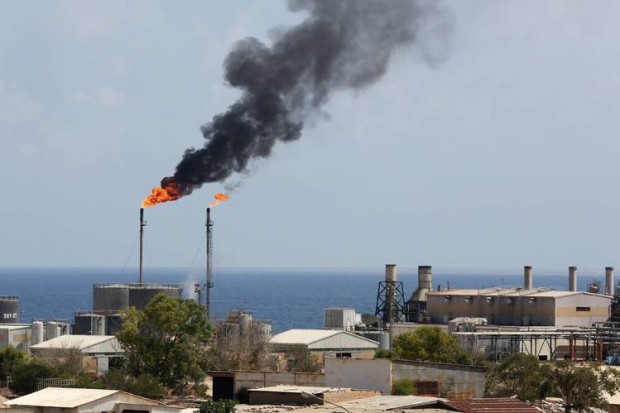Libya key oil fields set to reopen, production to heal

Three Libyan oil ports that have been closed for over a year are set to reopen, now that a unity government has arrived in Tripoli, militia leaders said, a rare positive sign for an oil sector that has been under siege.
“We are planning to reopen the ports. It’s under the control of the unity government now,” Ali al-Hassi, a spokesman for the Petroleum Facilities Guard, the militia protecting the facilities, told The Wall Street Journal.
The ports have been shut for up to a year and a half after Libya split between two governments in the East and West of the country. But on Wednesday, Fayez Sarraj, the head of a U.N.-sponsored government endorsed by factions on both sides, arrived in Tripoli to start running the country.
Mr. Sarraj’s cabinet, called the Government of National Reconciliation, confirmed on itsFacebook page that the “guards [protecting] the installations had agreed to open ports and work immediately” under its control.
The oil ports in Es Sider, Ras Lanuf and Zueitina were closed in the past year because of a dispute between the Petroleum Facilities Guard and one of the two rival governments. Later, the ports were the scene of violent attacks, mostly by the Libyan branch of Islamic State.
The reopening of the ports raises hope that Libya can increase its oil exports, the main source of revenue for a North African country that in theory could pump up to 1.5 million barrels a day. In recent months it has produced about 400,000 barrels a day, as constant attacks on its facilities took a toll.
A return to normal production, however, may not be straightforward.
A pipeline leading to the Zueitina terminal, which has an export capacity of 70,000 barrels a day and was shut in November, was attacked in February.
Islamic State also destroyed storage tanks at the Ras Lanuf and es-Sider ports, which were already shut in late 2014 and have the ability to load 550,000 barrels a day. Libya’s National Oil Co. has previously said the damage would delay the return of 300,000 barrels a day out of the two terminals’ loading capacity of 560,000 barrels a day.
How to submit an Op-Ed: Libyan Express accepts opinion articles on a wide range of topics. Submissions may be sent to oped@libyanexpress.com. Please include ‘Op-Ed’ in the subject line.
- Libya’s NOC denies ‘false’ revenue reports - April 03, 2025
- Tunisian president: Mulberry leaves wither and crumble - April 03, 2025
- US strengthens Middle East military presence - April 03, 2025


